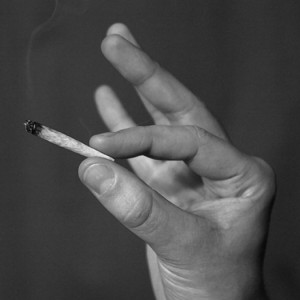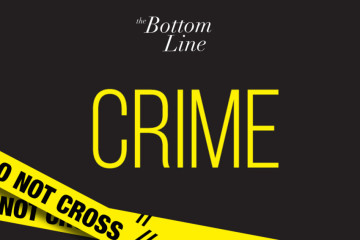Smoke a Little Smoke: With New Decriminalization Bill, Students Face Fines Instead of Criminal Charges
Governor Martin O’Malley announced he will sign a bill to decriminalize the possession of less than 10 grams of marijuana in the state of Maryland. Rather than facing criminal sanctions such as jail time, those caught with the drug will now face fines.
The House approved the bill on April 5 in a 78-to-55 vote and then two days later, the Senate provided final approval for the bill in a 34-to-8 vote. According to the Pew Research Center for the People & the Press, 24 states have legalized or decriminalized marijuana.
Even though marijuana possession is still illegal in Maryland, the new repercussions could ultimately impact young adults, including those at Frostburg State University (FSU). However, in FSU’s Chief Cynthia Smith’s opinion, the bill will not greatly impact the university.
Smith pointed out that some expect increased reports of drug use on campus, but there are arguments both ways. She said, “From an enforcement aspect, it probably won’t change.”
Smith also remarked, “[I would like] students to remember a few things. It is still a federal violation, [and] at FSU, a Code of Conduct violation. It will still be a civil violation and is going to be something on your record.” Smith added, “Most employers today are doing background test and that can be what’s keeping you from getting the job.”
Currently, when a FSU student is found in possession of drugs, the police will seize the contraband, charge the individual criminally, provide a criminal citation and then refer the student to the Judicial Board. However, if the student does not provide consent to search, the police cannot enter without a warrant, both on and off campus.
“Just because the dorms are owned by the University, [FSU] police can’t come in [the dorms] and search,” Smith said.

In order to discourage drug use on campus, the FSU police make sure that resident assistants (RAs) are equipped with the necessary knowledge about drugs and alcohol.
“[We] help the RAs become acquainted with the smell of marijuana [so they can recognize it],” Smith said.
This training is especially beneficial since the reports of drug usage are much higher on campus than those off campus. So far, this semester there have been 10 incidents of marijuana use on campus and only three of these were off campus. During last semester of fall 2013, there were 15 incidents with only three off campus.
Assistant Vice President of Student and Educational Services Jeffery Graham agreed that the bill will probably not have strong impacts on FSU. He said, “I don’t have major concerns.”
Graham does caution students to become familiar with the bill and avoid misconceptions about decriminalization. Students caught with marijuana will still have to face five sanctions. These include parent notification, as well as the student completing an online module, paying $100 judicial program fine, facing disciplinary probation and taking random drug screenings.
If a student under 21 possesses drugs, they will face a mandatory court appearance, drug assessment and drug course, which can be costly.
Although Graham does not see a strong impact on FSU, he still disagreed with the legislation. He said, “This is Maryland [officials] following along with what is popular and making misinformed decisions.”
Graham also remarked, “The Black Caucus is looking at this the wrong way. [Instead of relaxing the sanction, we should be using] enforcement and prevention.”
In the world of contraband, it is also important to note how public perception of a particular drug can influence users. Graham said, “Research shows that use goes up as harm perception goes down.” He also pointed out that the battle on cigarettes has stretched several decades and as consumers became aware of the health risks, cigarette use went down.
Even though marijuana smoke might not be as physically harmful as cigarette smoke, Graham said, “There’s still a health risk. There’s a risk with smoking anything.” He added, “I’m not trying to demonize it, but is it healthy?”
According to the American Lung Association, “Like tobacco smoke, marijuana smoke contains cancer-causing chemicals. There are 33 cancer-causing chemicals contained in marijuana.”
Although not all marijuana users turn to stronger drugs, research also show that those who use stronger drugs began with marijuana. The Foundation for a Drug-Free World said, “The vast majority of cocaine users (99.9 percent) began by first using a ‘gateway drug’ like marijuana, cigarettes or alcohol.”
For any students who wish to quit smoking, Graham encouraged them to visit the university’s counseling center, as well as Brady Health. He also encouraged all students to search trusted websites to learn about the effects of these drugs. He said, “That’s what being an informed citizen is about.”
Some FSU students shared the view that decriminalization will not likely impact the university. Freshman Ana Reyes said, “Not everyone is going to care about the fine. If they’re selling [marijuana], they are still making money.”
Similarly, Nana Adjoa Amamoo, a freshman said, “Either way people [will] smoke.” She added that she thought the fine will still discourage some students from using marijuana, but it might not affect current users.
As Maryland loosens sanctions on marijuana use, students must recognize how decriminalization affects them individually and societally. When choosing to pick up the doobie, students should be aware of drug side effects, safety, and ultimately, how drug use will affect their post-grad career.




1 Comment